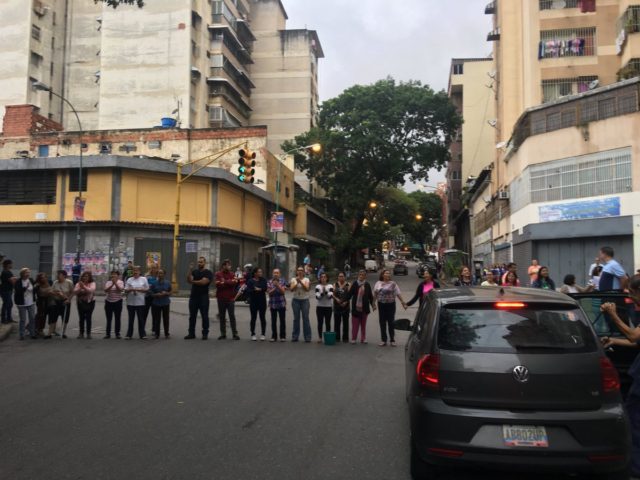Local residents in Venezuela staged further protests on Monday as the failed socialist country now appears to be running out of clean water. Multiple groups of demonstrators blocked highways around the capital of Caracas to protest the lack of clean water supplies.
On the Avenida Baralt in central Caracas, protesters complained that they had not received water for two days and, as a result, were forced to use stagnant water, exposing them to infectious diseases.
“At 7:05 am we are in Santa Teresa area of Glorieta protesting for water. #CaracasWantsWater,” wrote local councilor Jesús Armas on Twitter. “The residents of Santa Teresa are raising their voice and exercising their rights, the only way to pressure @HIDROCAPITALca to do their jobs is to activate as citizens.”
Elsewhere in Caracas, locals blocked a highway outside the Concresa shopping mall in the Baruta neighborhood to protest the lack of water, as well as the recently elevated price of public transport. A recent report by the Venezuelan National Federation of Communal Councils and Communes found that 90 percent of ground transportation in the country is broken or out of service.
“Protest over the lack of transport and its increased fares in front of Concresa,” wrote Baruta councilor Héctor Urgelles. “Neighbors of Santa Cruz del Este and Terrace of the Equestrian Club come together.”
Another protest also took place on the Ocumare-Charallave highway in Miranda state, where residents claimed they had not received potable water in days.
“Locals have been protesting since 3 am due to lack of water on the Charallave-Ocumare highway, and are now requesting the presence of the media,” wrote onlooker Rocely Romero in Twitter.
The last major water shortage in Venezuela was in February 2016, when authorities announced a weekend “maintenance” session designed to maintain sufficient water levels during a period of drought. An estimated three million in Caracas consequently went without water, where the average temperature at that time of year is 68F.
The lack of clean water is the latest in a string mass shortages experienced in Venezuela under the rule of socialist dictator Nicolás Maduro. Access to basic resources from food to medicine is now extremely limited, mainly as a result of hyperinflation that has rendered its Bolivar country as practically worthless. Based on real worth exchange rates, the country’s minimum wage is roughly equivalent to one dollar ($1) a month.
The country is now widely regarded to be in its worst ever economic and humanitarian crisis, with hundreds of thousands of people now fleeing to neighboring countries such as Brazil and Colombia.

COMMENTS
Please let us know if you're having issues with commenting.